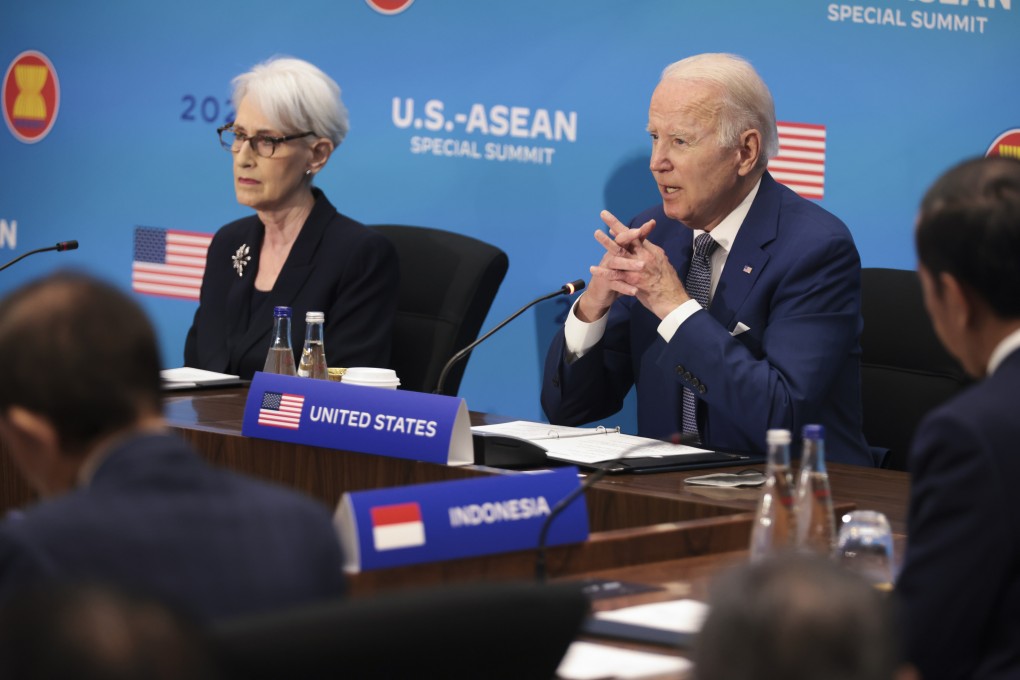Advertisement
Opinion | On Asean and the Indo-Pacific, the US must remember that ‘Asians live by trade’
- Despite much talk of economic engagement and assurances that the Indo-Pacific Economic Framework is ‘not about China’, the US approach in Southeast Asia seems to be largely about the politicisation of trade and technology issues
- Asean wants tangible trade benefits, not more pressure to choose a side
Reading Time:4 minutes
Why you can trust SCMP
4

Although the representatives of the Association of Southeast Asian Nations (Asean) have been hosted by a US president before – by Barack Obama at Sunnylands in California in 2016 – this month marks the first time in the association’s 55-year history that its leaders have been invited to the White House.
Advertisement
The US-Asean special summit held on May 12 and 13 in Washington can therefore be described as a historic event.
It gave US President Joe Biden the opportunity to meet his guests’ economic and investment expectations, set during a virtual East Asia Summit last October, when he highlighted the need to develop a regional economic framework for the Indo-Pacific.
Since then, the US has put tremendous effort into convincing Asean partners that it wants to revive its economic standing in the region after former US president Donald Trump withdrew from the Trans-Pacific Partnership in 2017, later relaunched without US participation as the Comprehensive and Progressive Agreement for Trans-Pacific Partnership.
Last November, US Commerce Secretary Gina Raimondo gave an initial pitch at the Bloomberg New Economic Forum in Singapore. Surprisingly, Raimondo made clear that her country would not join the CPTPP any time soon and, at the same time, said the new economic framework would not “be a traditional trade agreement”.
She also floated a vague concept of “friendshoring” that, to my understanding, would predominantly find its utility in the sharing of semiconductor technology. Indeed, under the disguise of reducing bottlenecks, the US requested supply chain data from the world’s leading chip producers in 2021 and issued a joint statement with Malaysia aimed at signing an agreement this year that would cover the same topic.

Advertisement
